|
Emotional Self Care: Knowing Your Love Language EMOTIONAL SELF-CARE: KNOWING YOUR LOVE LANGUAGE
How do you feel loved? Know the language that communicates your love You have a unique way in which you feel and give love. It is your special 'language.' This was the insightful observation laid out for us by Gary Chapman in “The Five Love Languages." His concepts describing the ways in which we feel loved and appreciated have resonated with our hearts since 1992. Understand how you're wired Each of the five ‘love languages” - compliments, time, touch, gifts, help - are enticing. For years, I struggled to fit my assessment into one of the categories. But I always felt none were scratching where I itched. I sensed my truest core language was absent from the list. “Something in our nature cries out to be loved by another. Isolation is devastating to the human psyche. That is why solitary confinement is considered the cruelest of punishments.” Gary Chapman, 'The Five Love Languages: The Secret to Love that Lasts' Ask yourself what truly resonates Quality time came the closest. Close, but no cigar. I highly value time spent with close friends, but time is just the surface layer. I slowly observed that it was a particular type of time that allowed me to feel seen and heard. Ask yourself what you truly relish I relish time spent in reciprocal inquisitive conversation. It’s the added dimension of mutual delighted curiosity that rings my bell. This is my language of love. How do you show you really care? By asking questions, I show others I care for them. And by being asked questions, I feel seen. It is this exchange that, for me, digs deep reservoirs of relationship. For me, time spent in conversation with mutual curiosity is a clear channel of genuine love. It's this reciprocity that allows us to see beyond the shallow surface of small talk. "If you make listening and observation your occupation, you will gain much more than you can by talk." --Robert Baden-Powell What's your love language super-power? My ability to get curious about others has always come easy to me. It is my superpower. Though this power had its origins in people-pleasing, and needed to be harnessed into health, nevertheless, it empowers my relationships. How to nurture healthier relationships? In shedding my people-pleasing skin, I sought a way to examine the quality of a relationship. By asking one simple question, I could nurture more healthy interactions. This is now my litmus test : How easy is it for this person to leave their ego at the door? “The best thing we can do with the failures of the past is to let them be history.” Gary Chapman, 'The Five Love Languages: How to Express Heartfelt Commitment to Your Mate' Have you ever felt something was amiss? In earlier years, when I tried to give and receive love by showing curiosity, I ended up playing the part of an ‘good listener.’ I knew something was amiss. And I often sensed that folks appreciated my companionship the way they would appreciate a finely framed mirror—a surface in which they could adore their own reflection. One of the most sincere forms of respect is actually listening to what another has to say." --Bryant H. McGill What are you not willing to do? Now I’m no longer willing to be a part of one-sided relationships. As someone who spent much of her life feeling unseen, I notice when someone really makes an effort to see me. What do you value? I value direct eye contact and inquiries such as, “But really—how are you feeling today?” I value it and I reciprocate. I value a pause in a story being told with an inclusive welcome, “Have you ever experienced anything like that?” I value an ability in conversation to hold just as much space as the space being taken up. And I value conversations that are a waltz of ideas instead of monologues on soap boxes. Do you know how to spot warning signs? With time and practice, I learned to recognize certain warning signs and let go of relationships bearing the marks of self absorption. What do you see as your relational responsibilities? Ultimately, it was my responsibility to shift this pattern and make space in my life for healthier connections. I could continue to feel victimized by one-sided relationships, or I could leave them behind and trust that I deserved better—and that better existed. We co-create these healthier, reciprocal connections by communicating, clearly, what we need in order to feel seen. The framework of love language gives us a simple way to understand the manner in which we ‘speak love’ and how we ‘hear love.’ Are you hoping for mind readers? Being able to articulate our specific language is unbelievably helpful to those around us. Because, after all, most of us are not mind readers! How can you be understood more easily? “My love language is curiosity. I feel most loved when others show curiosity by asking questions, showing they want to understand me.” By offering this simple truth, I give others a clear understanding of what makes me tick. Of course, whether they choose to act on that information is up to them. Do you understand your language? Understanding our language of love can help us navigate our relational world. If we find ourselves in relationships that are one-sided, we need to be willing to let them go. Though there’s an initial loneliness that comes from leaving old patterns, the horizon radiates with brighter possibilities. What love-language type are you?Comments are closed.
|
AuthorI share art and life-lessons inspired by my own path towards emotional wellness, Archives
July 2021
Categories
All
|

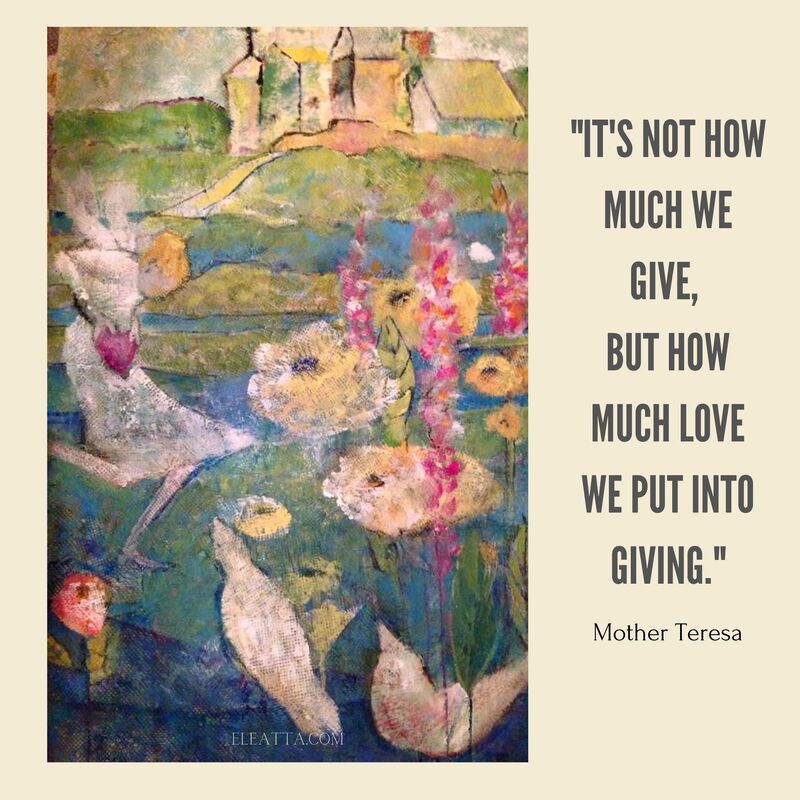
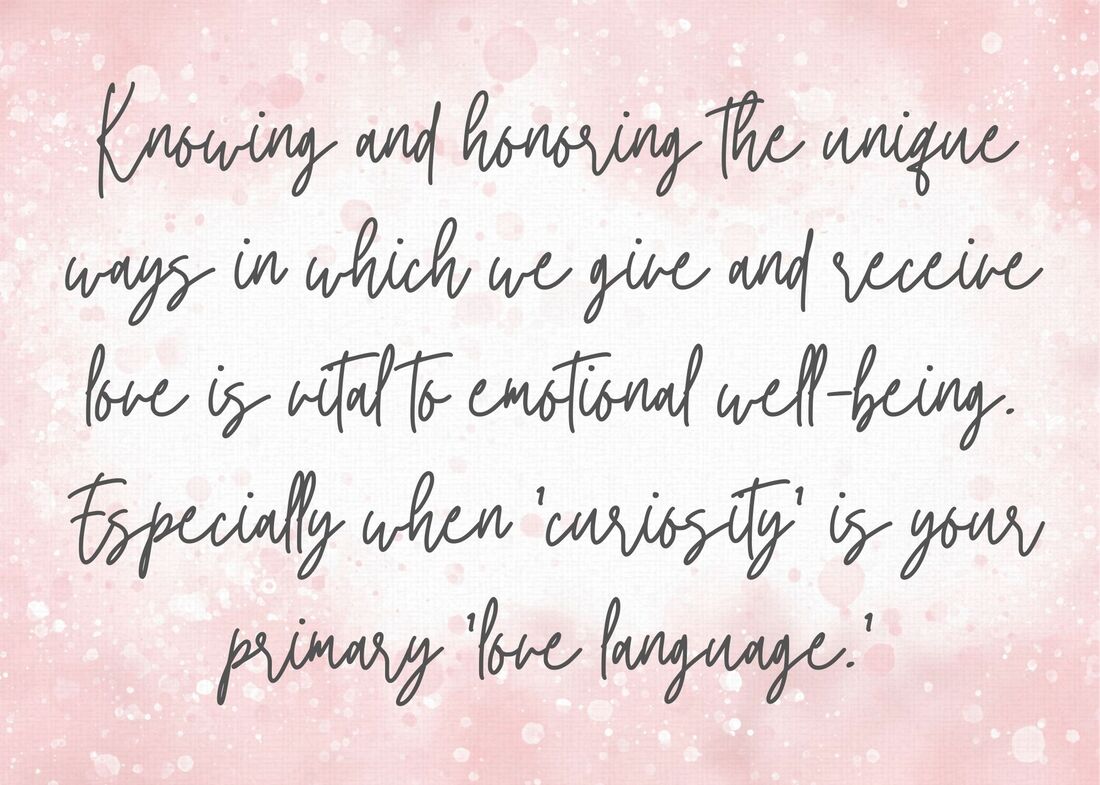
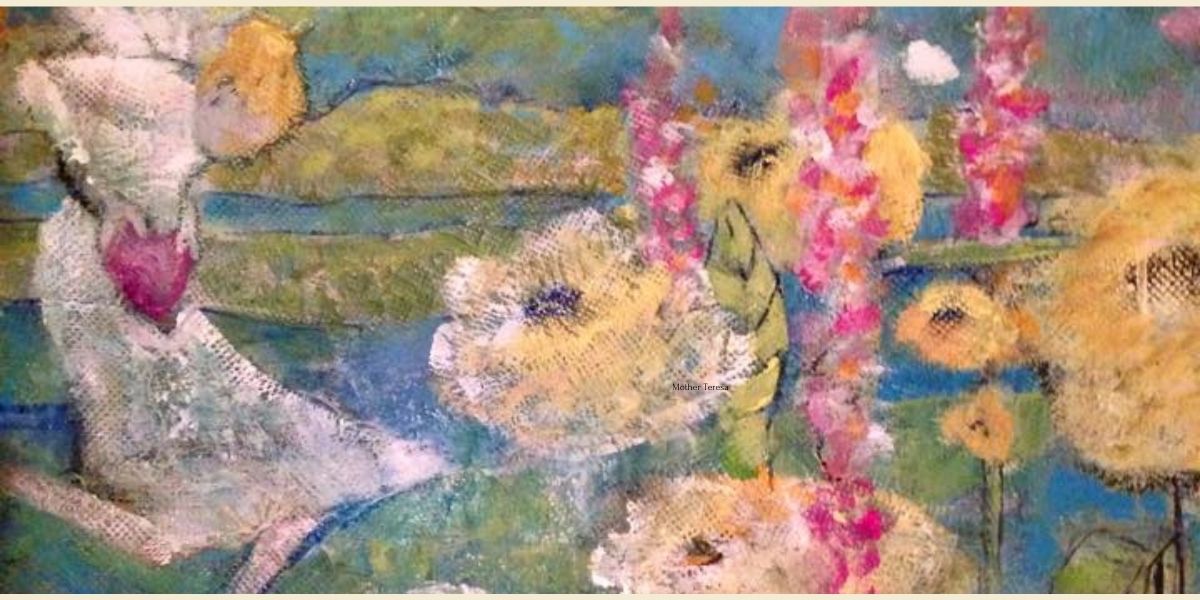
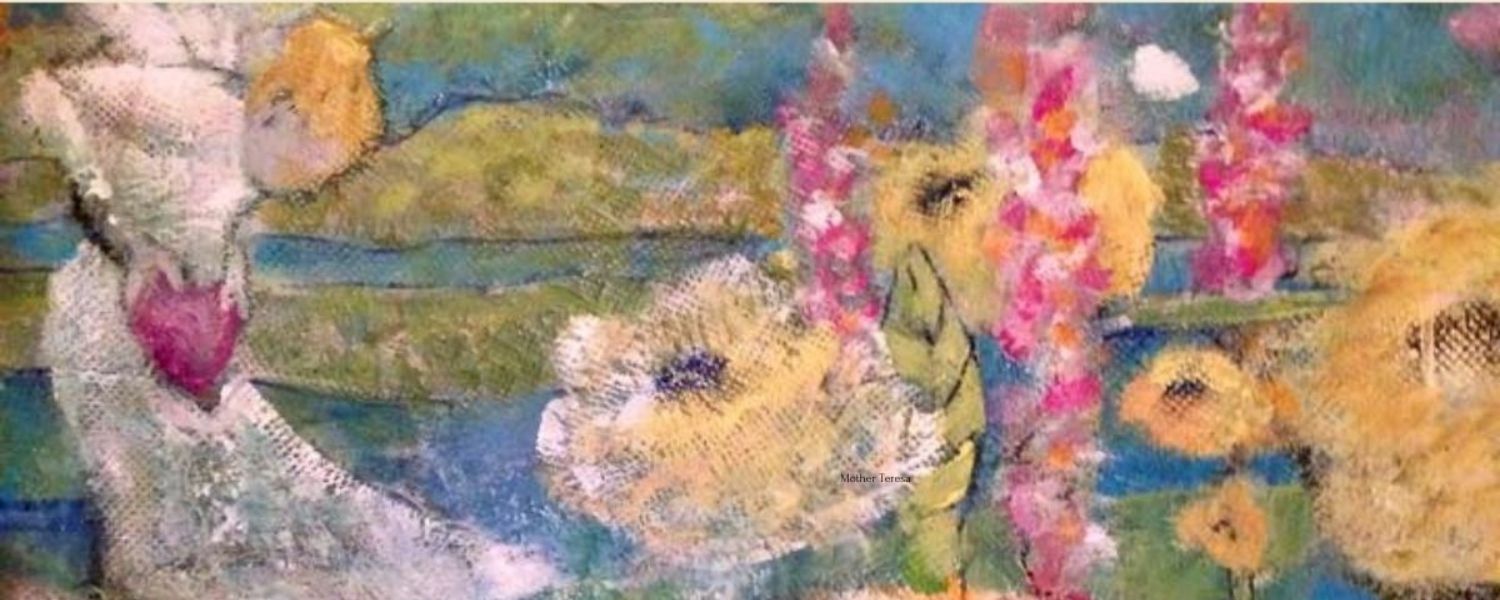
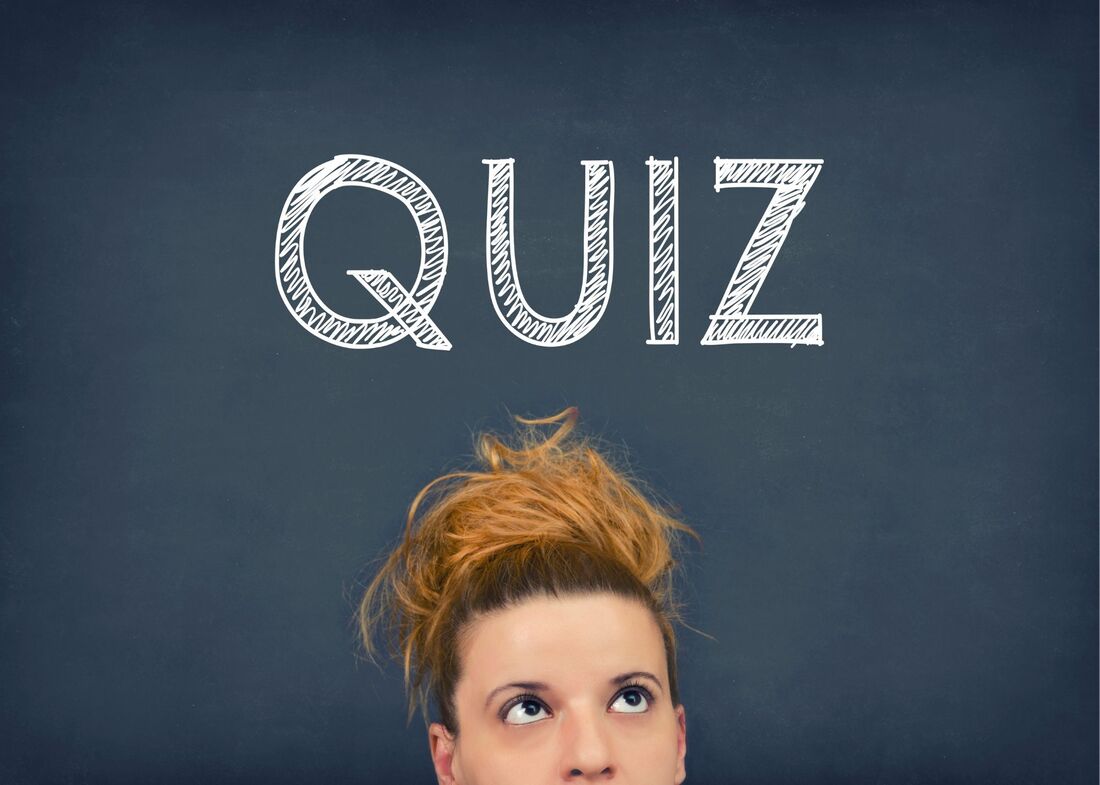

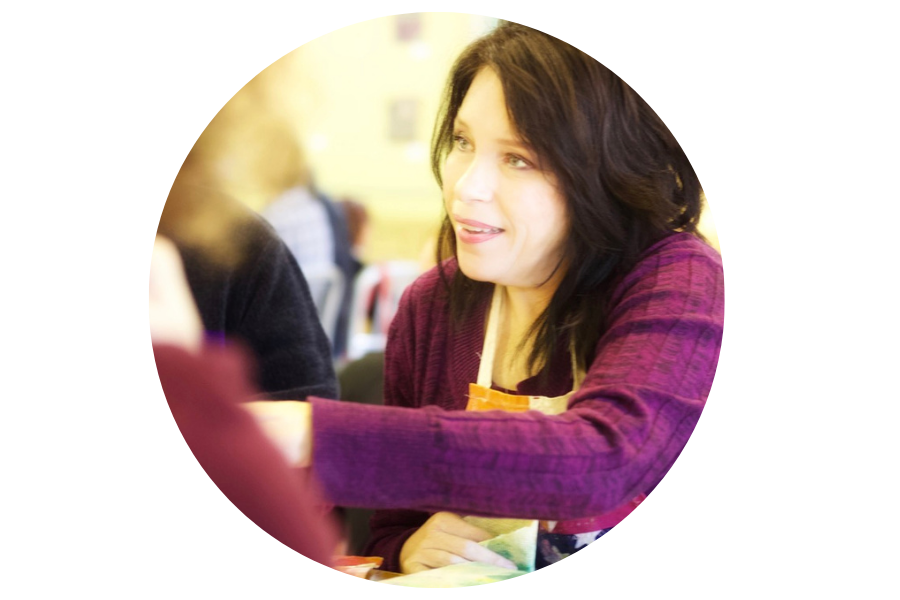
 RSS Feed
RSS Feed